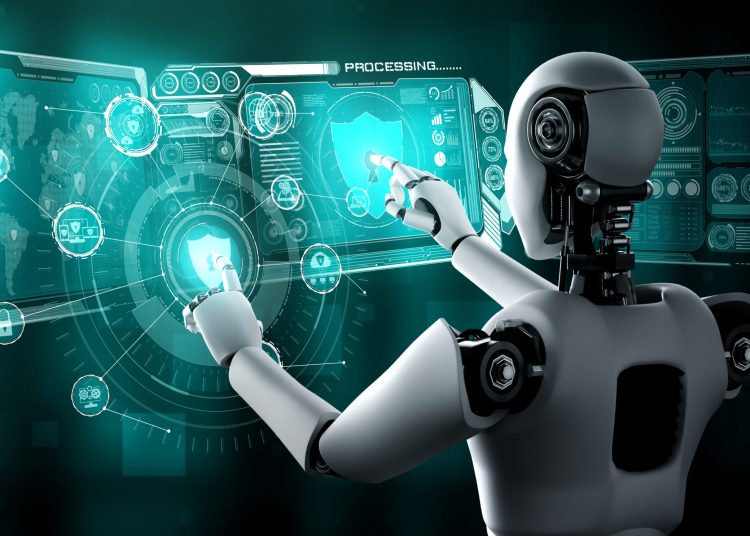Artificial Intelligence (AI) continues to reshape industries worldwide, heralding a new era of technological innovation and transforming the job market. As organizations increasingly harness AI to drive efficiency, innovation, and competitive advantage, a variety of specialized roles are emerging. This article outlines six promising AI-related careers poised to thrive in 2025, providing insights into the skills required and the impact these positions will have across sectors.
1. AI Research Scientist
Overview:
AI Research Scientists are at the forefront of technological discovery. Their work involves designing and developing new algorithms, exploring advanced machine learning models, and pushing the boundaries of what AI can achieve.
Key Responsibilities:
- Conducting pioneering research to develop innovative AI models.
- Publishing findings in peer-reviewed journals.
- Collaborating with academic institutions, corporate R&D labs, and government agencies.
Skills Required:
- Advanced proficiency in mathematics, statistics, and computer science.
- Expertise in machine learning frameworks (e.g., TensorFlow, PyTorch).
- Strong analytical and problem-solving abilities.
Career Impact:
These professionals are crucial for driving long-term AI innovations that can lead to breakthroughs in areas such as natural language processing, computer vision, and robotics.
2. Machine Learning Engineer
Overview:
Machine Learning Engineers are responsible for designing, developing, and deploying machine learning models that convert raw data into actionable insights. They play a pivotal role in integrating AI solutions into real-world applications.
Key Responsibilities:
- Building and training machine learning models.
- Optimizing algorithms for scalability and efficiency.
- Collaborating with data scientists and software engineers to deploy AI solutions.
Skills Required:
- Proficiency in programming languages such as Python and R.
- Familiarity with data processing and model deployment tools.
- A solid understanding of statistical analysis and algorithm design.
Career Impact:
Machine Learning Engineers help organizations harness data to drive decision-making processes, making them essential in industries ranging from finance and healthcare to e-commerce and beyond.
3. Data Scientist with AI Specialization
Overview:
Data Scientists with an AI focus specialize in analyzing large datasets using advanced machine learning techniques. Their role is to extract meaningful insights that inform strategic business decisions.
Key Responsibilities:
- Performing complex data analyses and predictive modeling.
- Integrating AI techniques to enhance data interpretation.
- Visualizing data insights for non-technical stakeholders.
Skills Required:
- Strong statistical and programming background.
- Expertise in data mining, machine learning, and big data platforms.
- Ability to communicate complex findings in an understandable manner.
Career Impact:
By bridging the gap between data analysis and strategic planning, these professionals enable organizations to make data-driven decisions that enhance performance and innovation.
4. Robotics Engineer
Overview:
Robotics Engineers combine hardware engineering with sophisticated AI software to create intelligent machines. Their work spans various industries, including manufacturing, logistics, and healthcare.
Key Responsibilities:
- Designing and developing robotic systems with integrated AI capabilities.
- Programming and testing robotic software.
- Ensuring systems meet performance and safety standards.
Skills Required:
- Strong background in mechanical and electrical engineering.
- Proficiency in programming languages used in robotics (e.g., C++, Python).
- Experience with AI integration and sensor technologies.
Career Impact:
Robotics Engineers are instrumental in driving automation and innovation, contributing to advancements in industrial processes and improving operational efficiencies.
5. Natural Language Processing (NLP) Engineer
Overview:
NLP Engineers focus on developing systems that enable computers to understand, interpret, and respond to human language. This field is essential for powering applications like virtual assistants, chatbots, and language translation services.
Key Responsibilities:
- Developing algorithms to process and analyze human language.
- Enhancing the accuracy of language models.
- Collaborating with data scientists and linguists to refine AI-driven language solutions.
Skills Required:
- Deep knowledge of computational linguistics and machine learning.
- Proficiency in NLP libraries and frameworks (e.g., NLTK, spaCy).
- Strong programming skills and an understanding of linguistic nuances.
Career Impact:
NLP Engineers are crucial for bridging the communication gap between humans and machines, making digital interactions more seamless and intuitive.
6. AI Ethicist
Overview:
As AI systems become ubiquitous, ethical considerations and responsible use have never been more critical. AI Ethicists provide guidance on the ethical deployment of AI technologies, ensuring compliance with legal and societal norms.
Key Responsibilities:
- Developing ethical frameworks for AI development and use.
- Assessing the social and legal implications of AI applications.
- Advising organizations on best practices to prevent bias and misuse.
Skills Required:
- Strong foundation in ethics, law, and technology.
- Excellent analytical and communication skills.
- Ability to navigate complex regulatory environments.
Career Impact:
AI Ethicists help organizations balance innovation with ethical responsibility, ensuring that AI advancements benefit society while mitigating potential risks.
The Future of AI Careers
As we look ahead to 2025, it is clear that the demand for specialized AI roles will continue to rise. Professionals in these fields will not only drive technological innovation but also shape the way businesses operate across sectors. With rapid advancements in AI, upskilling and continuous learning will be crucial for those looking to make an impact in this dynamic field.
Conclusion
The advent of AI has opened up an array of exciting career opportunities that promise to transform the future of work. Whether you are drawn to the analytical rigor of data science or the innovative spirit of robotics engineering, the emerging AI landscape offers diverse paths for those eager to lead in the digital age. As industries adapt and evolve, these six AI roles are set to become the cornerstone of tomorrow’s workforce, paving the way for a more intelligent, efficient, and ethically conscious future.







Discussion about this post